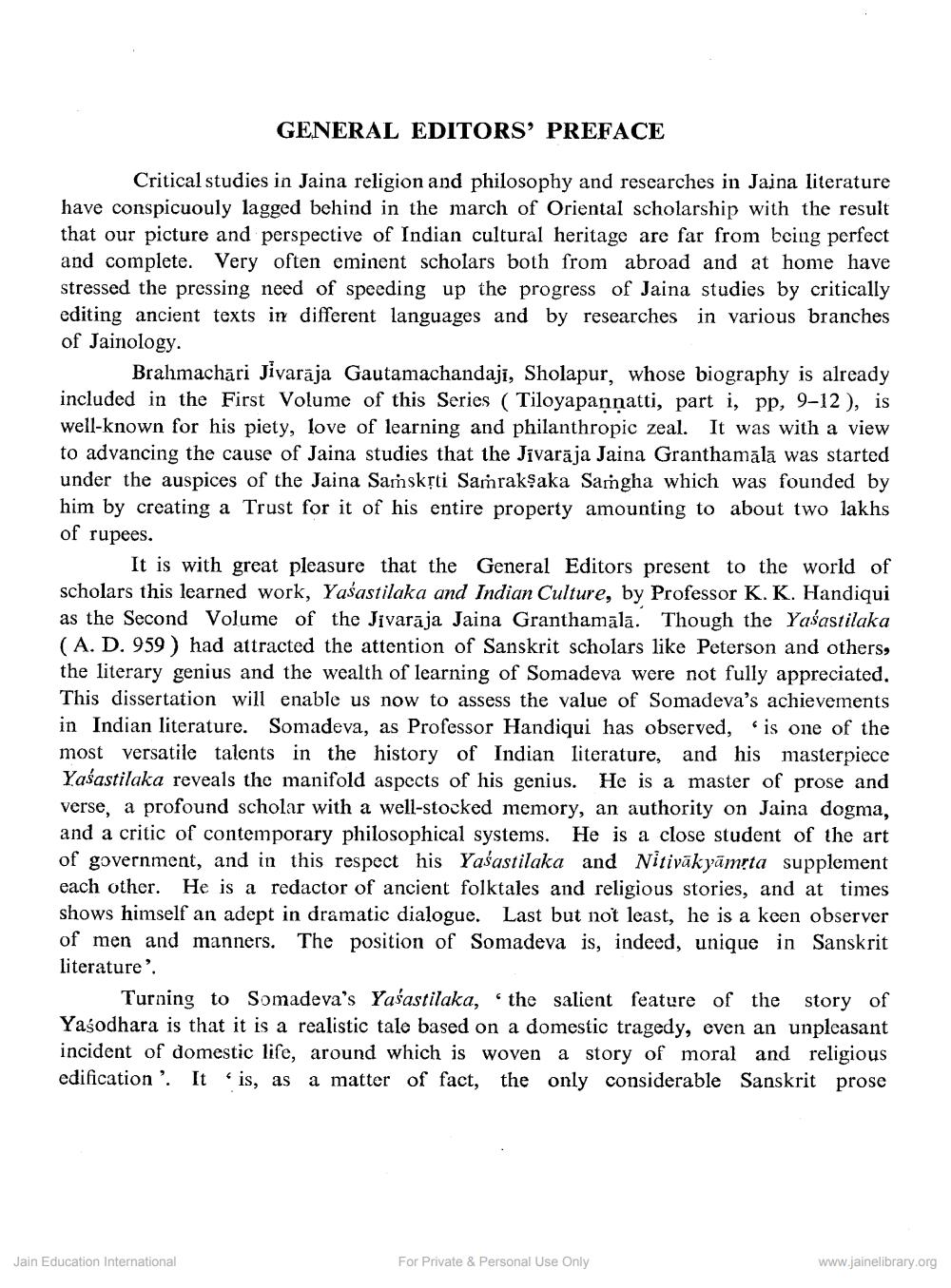________________
GENERAL EDITORS' PREFACE
Critical studies in Jaina religion and philosophy and researches in Jaina literature have conspicuouly lagged behind in the march of Oriental scholarship with the result that our picture and perspective of Indian cultural heritage are far from being perfect and complete. Very often eminent scholars both from abroad and at home have stressed the pressing need of speeding up the progress of Jaina studies by critically editing ancient texts in different languages and by researches in various branches of Jainology.
Brahmachāri Jivarāja Gautamachandaji, Sholapur, whose biography is already included in the First Volume of this Series ( Tiloyapannatti, part i, pp, 9-12), is well-known for his piety, love of learning and philanthropic zeal. It was with a view to advancing the cause of Jaina studies that the Jivarāja Jaina Granthamālā was started under the auspices of the Jaina Samskřti Samraksaka Samgha which was founded by him by creating a Trust for it of his entire property amounting to about two lakhs of rupees.
It is with great pleasure that the General Editors present to the world of scholars this learned work, Yaśastilaka and Indian Culture, by Professor K. K. Handiqui as the Second Volume of the Jivarāja Jaina Granthamala. Though the Yaśastilaka (A. D. 959) had attracted the attention of Sanskrit scholars like Peterson and others, the literary genius and the wealth of learning of Somadeva were not fully appreciated. This dissertation will enable us now to assess the value of Somadeva's achievements in Indian literature. Somadeva, as Professor Handiqui has observed, is one of the most versatile talents in the history of Indian literature, and his masterpiece Yaśastilaka reveals the manifold aspects of his genius. He is a master of prose and verse, a profound scholar with a well-stocked memory, an authority on Jaina dogma, and a critic of contemporary philosophical systems. He is a close student of the art of government, and in this respect his Yaśastilaka and Nitivākyāmita supplement each other. He is a redactor of ancient folktales and religious stories, and at times shows himself an adept in dramatic dialogue. Last but not least, he is a keen observer of men and manners. The position of Somadeva is, indeed, unique in Sanskrit literature.
Turning to Somadeva's Yaśastilaka, the salient feature of the story of Yasodhara is that it is a realistic tale based on a domestic tragedy, even an unpleasant incident of domestic life, around which is woven a story of moral and religious edification'. It is, as a matter of fact, the only considerable Sanskrit prose
Jain Education International
For Private & Personal Use Only
www.jainelibrary.org




